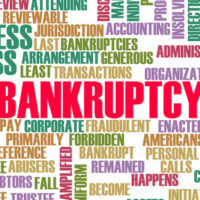Chapter 11 Bankruptcy and Single Asset Real Estate Cases in Tampa

If you own a business in Tampa and are considering Chapter 11 bankruptcy, it is important to learn more about how being a single asset real estate (SARE) debtor could impact your case. In short, if you are a SARE debtor, you may need to pay attention to specific time limits and requirements in order to be eligible for a continued automatic stay in your Chapter 11 case. We want to say more about how the U.S. Bankruptcy Code defines a single asset real estate and to explain why it matters.
What is a Single Asset Real Estate Debtor?
Under the U.S. Bankruptcy Code, a single asset real estate (SARE) is defined as a single property or project that generates substantially all of the gross income of a debtor who on which no substantial business is being conducted by a debtor other than the business of operating the properties and activities.
Based on this definition, there are three primary elements necessary to qualify as an SARE:
- Real property is a single property or project;
- Real property generates substantially all of the debtor’s gross income; and
- Debtor is not involved in any substantial business other than the business of operating the real property.
Defining an SARE Debtor Under the U.S. Bankruptcy Code: Some Examples
Examples of SAREs may include but certainly are not limited to the following kinds of properties in the Tampa Bay area:
- Office building;
- Shopping center;
- Apartment building;
- Mixed use shopping center with apartments; and
- Warehouse.
It is important to understand that a wide variety of other properties that might appear to fit the definition under the U.S. Bankruptcy Code typically are not considered SAREs for the purposes of a single asset real estate case. Many of the following types of properties are common in the Tampa Bay area but are not SAREs:
- Marinas that engage in boat repairs and/or sell concessions;
- Golf courses that offer concessions, other recreational facilities like swimming pools or tennis courts, or golf cart rentals; and
- Hotels or motels that have restaurants, bars, gift shops, phone services, and even cleaning services.
Given that the types of properties listed above that do not qualify as SAREs almost always engage in other business activities like the ones described above, in most circumstances those types of businesses will not qualify. For example, it is rare to have a golf course that does not offer at least golf cart rentals or some form of concessions. Likewise, it is rare to have a hotel that does not offer some additional service like the ones listed above.
More Limits in a Chapter 11 Single Asset Real Estate Debtor Case
Why is there a special category for a Chapter 11 SARE bankruptcy case? In other words, what makes this type of case so different from other business-related Chapter 11 cases? In short, the terms of an SARE case are designed to make it more limited in length. This type of bankruptcy can be more beneficial to creditors because the SARE cannot use the automatic stay throughout the bankruptcy case. While the SARE debtor can use the automatic stay to prevent foreclosure on the property, the automatic stay is limited. In order to maintain the automatic stay, the U.S. Bankruptcy Code requires the debtor to do one of the following:
- File repayment (or reorganization) plan that can be completed within a reasonable amount of time; or
- Start paying monthly interest payments.
The debtor must take one of these steps within 30 days from the date that the court defines the debtor as an SARE.
Contact a Tampa Bankruptcy Lawyer
If you are considering filing for Chapter 11 bankruptcy, you should discuss your case with a Tampa Chapter 11 bankruptcy attorney. Chapter 11 bankruptcies can be particularly complicated when they involve a single asset real estate debtor. Contact Samantha L. Dammer to get started on your case today.
Resource:
law.cornell.edu/uscode/text/11/101
